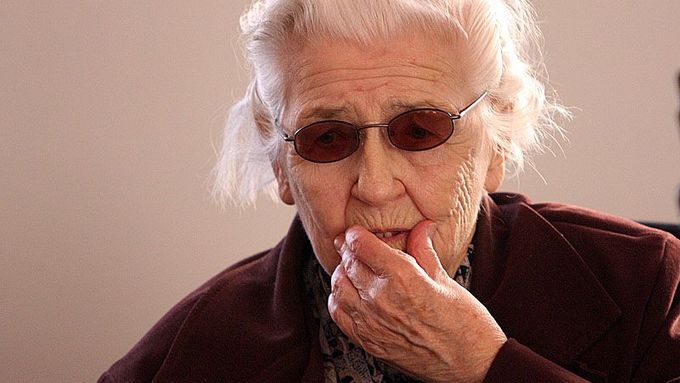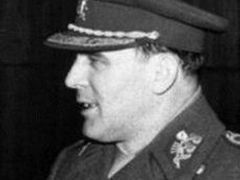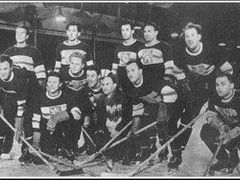Prague - Former prosecutor Ludmila Brožová-Polednová was probably the last person to face a trial out of all people involved in infamous political processes in the 1950s.
"It is 99 percent sure that this is the last case. Currently, we are not working on any other proposal for accusations," says Jan Srb, spokesperson of The Office for the Documentation and the Investigation of the Crimes of Communism Police of the Czech Republic.
Brožová-Polednová who helped send a prominent democratic politician Milada Horáková to the gallows nearly six decades ago was re-sentenced Tuesday to six years in prison last week by the Pilsen high Court.
Read more:Former prosecutor gets six years for judicial murder
1950s witch hunts
The 1950s in Czechoslovakia saw dozens of "butchers" who were involved in the Communist Party's witch hunt. According to Srba, only three of the former judges and prosecutors were called for responsibility.
Save the recent case of Ludmila Brožová-Polednová, it was also former judge Karel Vaš who ordered a death penalty for General Heliodor Píka, a senior Czechoslovak WWII army officer, in a show trial in 1949.
Why were only three people brought to justice even though there were many more?
"When we started with the processes, most of the people were either very old or they already died," says Srba.
But historian Petr Koura sees the overall atmosphere in the Czech society to be the reason. "People were not willing to come to terms with the past," he says.
Koura also points out that the judges and prosecutors were not in the center of people´s attention. "All attention was focused on investigators and prison officers," he adds.
Píka's murder barred by statute of limitation
Communist prosecutor Karel Vaš was one of the men behind the death sentence for Czechoslovak war hero general Heliodor Píka.
Six years ago the court let him walk off with no charges because his crime was allegedly barred by the statute of limitation.
Karel Vaš was charged for including fake documents in Píka's file that were to prove him guilty for cooperation with the British secret service.
The Prague Municipal Court found Vaš guilty, however it decided to stop the proceedings because of the statute of limitation.
Soviet concentration camps
Many historians believe that Píka was not murdered for being a traitor but because as the head of the Czechoslovak army mission in Moscow he knew about dozens of Soviet concentration camps. Píka was supposed to have known about inhuman and cruel conditions and hunger that ruled over the camps.
Historian Petr Koura points out one more important reason why general Píka had to die - he had a good knowledge of the Soviet army.
"While in Soviet Union, Píka learned how the Red Army and the whole Soviet system worked. He would have been able to leak information to the other side in case of a cold war conflict. That is why he had to die so that he could not pass this information to the West. A personal revenge could have also been played a role here, for example by those communists that Píka criticized from Moscow repeatedly," Koura believes.
The process of Babice
Judge Pavel Vítek who became infamous for his role in the so called Babice case was one of the people who were supposed to be on trial too.
"The case made it to the court but before the main proceedings could happen, Vítek passed away," Srb explains.
The Babice case was a dividing line in the history of Czechoslovak political processes, according to historians. For the first time, the process was held with a set-up group of people. The aim was to intimidate anticommunists, catholics and farmers.
It started in 1951 when three communist officials were killed and one injured in the school building in Babice. Within one day the alleged murderers were arrested. Ten days after that, a trial was started in Jihlava with 14 people.
"It was the same method Nazis used at the end of the war against partisans," Koura explains the unexpected speed in which the alleged criminals were caught.
It has remained unclear why the murders happened. Historians are still debating if the Czechoslovak secret police StB actually killed the communist officials or if they just used the killings in a later process with anticommunists.
"In my view, the case was a provocation by StB," says hsitorian Koura.
World champions in a prison camp
Several Czechoslovak ice hockey players who won the world championship twice also became a target of a combined charge. Many of the greatly successful ice hockey team were sentenced to long years in prison in a process known as "Modrý a spol" (Blue and company) case. Athletes were accused of being spies and traitors.
None of the judges from this 1950s case appeared in the court after the communism fell, nor did judges from the case in Kubalova Lhota that issued a death sentence for three farmers in a speed-up trial.
According to historian Tomáš Bursík it is little late to punish the crimes of communism now. But it is not late to prove people guilty.
"It is little late for punishments and legal proceedings. But I still believe that it is not too late for the Czech society and future generations to say that there were crimes committed in the name of communist ideology," Bursík said.


